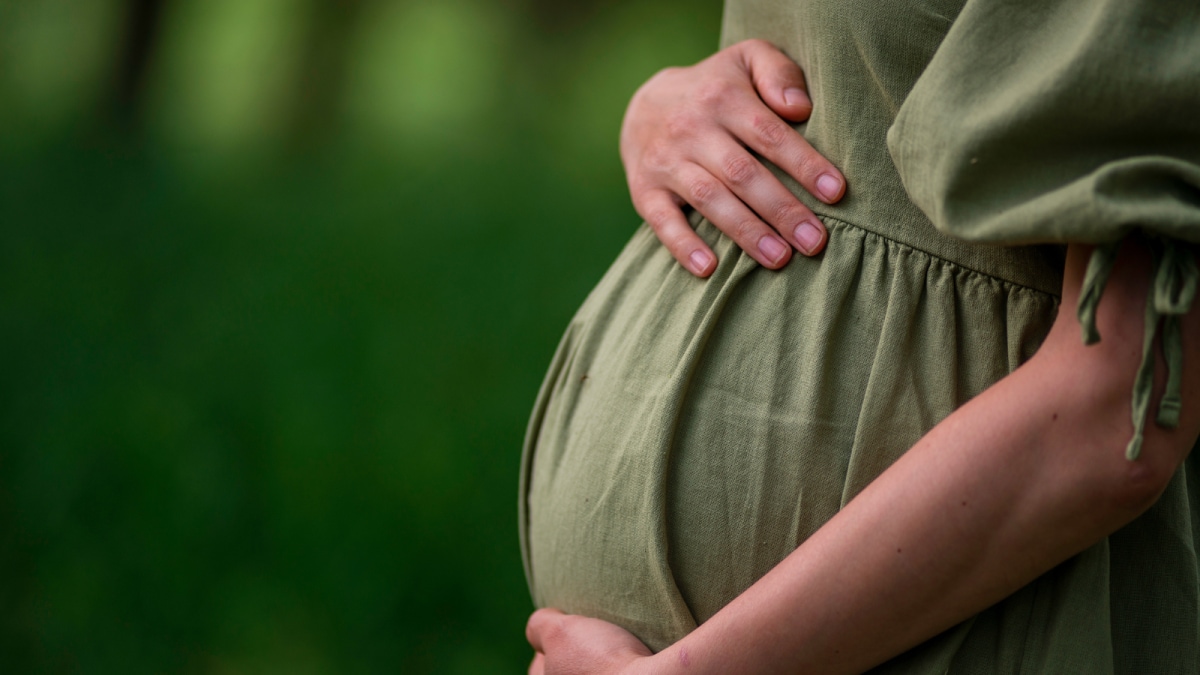Last Updated:
As societal perspectives evolve and with several celebrities opening up about embracing motherhood later in life, it’s essential to understand the health implications

For those who face challenges conceiving naturally, modern fertility treatments offer a range of possibilities.
With more women choosing to delay motherhood in pursuit of career goals, financial stability, or personal readiness, pregnancy after the age of 40 has become increasingly common. As societal perspectives evolve and with several celebrities opening up about embracing motherhood later in life, it’s essential to understand the health implications, precautions, and treatment options associated with late-age pregnancy.
Two leading fertility experts, Dr Ruchika Sood, Consultant, Fertility & IVF, Apollo Fertility, New Delhi, and Dr. Pallavi Chennamaraju, Fertility Specialist, Nova IVF Fertility, Chennai, share their insights on the challenges, possibilities, and science behind conception in your 40s.
Understanding Late-Age Pregnancy and Its Health Factors
According to Dr Ruchika Sood, women over 40 face a higher risk of certain pregnancy-related complications, including gestational diabetes, hypertension, and preeclampsia. “Pregnancies for women above the age of 40 also have a higher chance of chromosomal abnormalities such as Down syndrome, along with premature birth or low birth weight,” she explains.
She adds that miscarriage risk also rises with age often linked to declining egg quality and hormonal imbalances.
Dr Pallavi Chennamaraju concurs, emphasizing that fertility declines significantly after 40. “The number and quality of eggs decrease, and hormonal changes become more severe. Fertility per cycle drops to about 5%, compared to 20–25% in younger women,” she notes. “However, with proper medical care, many healthy women in their 40s do manage to get pregnant naturally.”
Preconception Care: The Foundation of a Healthy Pregnancy
Both experts agree that preconception screening is crucial before trying to conceive.
Dr Sood recommends a comprehensive medical evaluation that includes screening for chronic conditions such as thyroid disorders, diabetes, and hypertension, as well as assessing ovarian reserve and hormone balance. “A well-informed and medically guided start can help identify correctable issues early, reducing the risks associated with late-age pregnancy,” she says.
Dr Chennamaraju echoes this, calling pre-conception assessment “extremely important for evaluating the individual’s general health status and correcting any issues before starting the journey of conception.”
Lifestyle and Mental Health Matter
Good lifestyle choices can significantly influence fertility and pregnancy outcomes.
“Balanced nutrition, regular exercise, and stress management are essential,” says Dr Ruchika Sood, who also advises avoiding smoking, alcohol, and high-sugar diets. These factors not only improve overall health but also support better hormonal balance and reproductive function.
Dr Chennamaraju adds that maintaining a healthy weight, getting adequate sleep, and managing stress holistically are equally critical. “Women should follow a balanced diet rich in vitamins and minerals, stay physically active, and cut down on caffeine. A healthy lifestyle can naturally enhance fertility,” she explains.
Mental well-being is another key pillar. “Having a strong support system of family and friends can help alleviate stress and anxiety during this phase,” notes Dr Sood.
Monitoring and Regular Check-Ups
For women in their 40s, regular prenatal monitoring becomes even more vital. “Timely check-ups during pregnancy play a major role in detecting potential issues early and ensuring both maternal and fetal well-being,” says Dr Sood. Frequent visits to the doctor allow for personalized care and intervention when needed.
Fertility Treatments and Technological Advances
For those who face challenges conceiving naturally, modern fertility treatments offer a range of possibilities. Dr Sood highlights options such as egg freezing (oocyte cryopreservation), an increasingly popular choice for women who wish to preserve their fertility at a younger age. “Egg freezing allows women to use their own eggs later, increasing the likelihood of conception with healthy embryos,” she explains.
She also points to In Vitro Fertilization (IVF) combined with Preimplantation Genetic Testing for Aneuploidy (PGT-A), which helps improve success rates and reduces the risk of chromosomal abnormalities. Additionally, she notes that Laser-Assisted Hatching (LAH), a technique that uses laser precision to help embryos attach to the uterine wall has shown promise in improving implantation success.
Dr Chennamaraju adds that treatments such as ovulation induction, intrauterine insemination (IUI), and IVF continue to offer viable paths to pregnancy. In cases of very low ovarian reserve, donor eggs or embryos can also be considered. “Preimplantation Genetic Diagnosis (PGT) ensures that only the healthiest embryos are selected, reducing the chances of genetic disorders,” she explains.
The Bottom Line: Hope and Preparation
While pregnancy in one’s 40s can present unique challenges, both experts emphasize that it’s not only possible but often rewarding with the right preparation and care.
“Age may influence fertility, but science, awareness, and self-care can make a tremendous difference,” opines Dr Sood.
Dr Chennamaraju concludes, “Every woman’s journey is unique with the right medical guidance and emotional support, pregnancy in the 40s can be both safe and fulfilling.”

Swati Chaturvedi, a seasoned media and journalism aficionado with over 10 years of expertise, is not just a storyteller; she’s a weaver of wit and wisdom in the digital landscape. As a key figure in News18 Engl…Read More
Swati Chaturvedi, a seasoned media and journalism aficionado with over 10 years of expertise, is not just a storyteller; she’s a weaver of wit and wisdom in the digital landscape. As a key figure in News18 Engl… Read More
October 30, 2025, 16:38 IST






